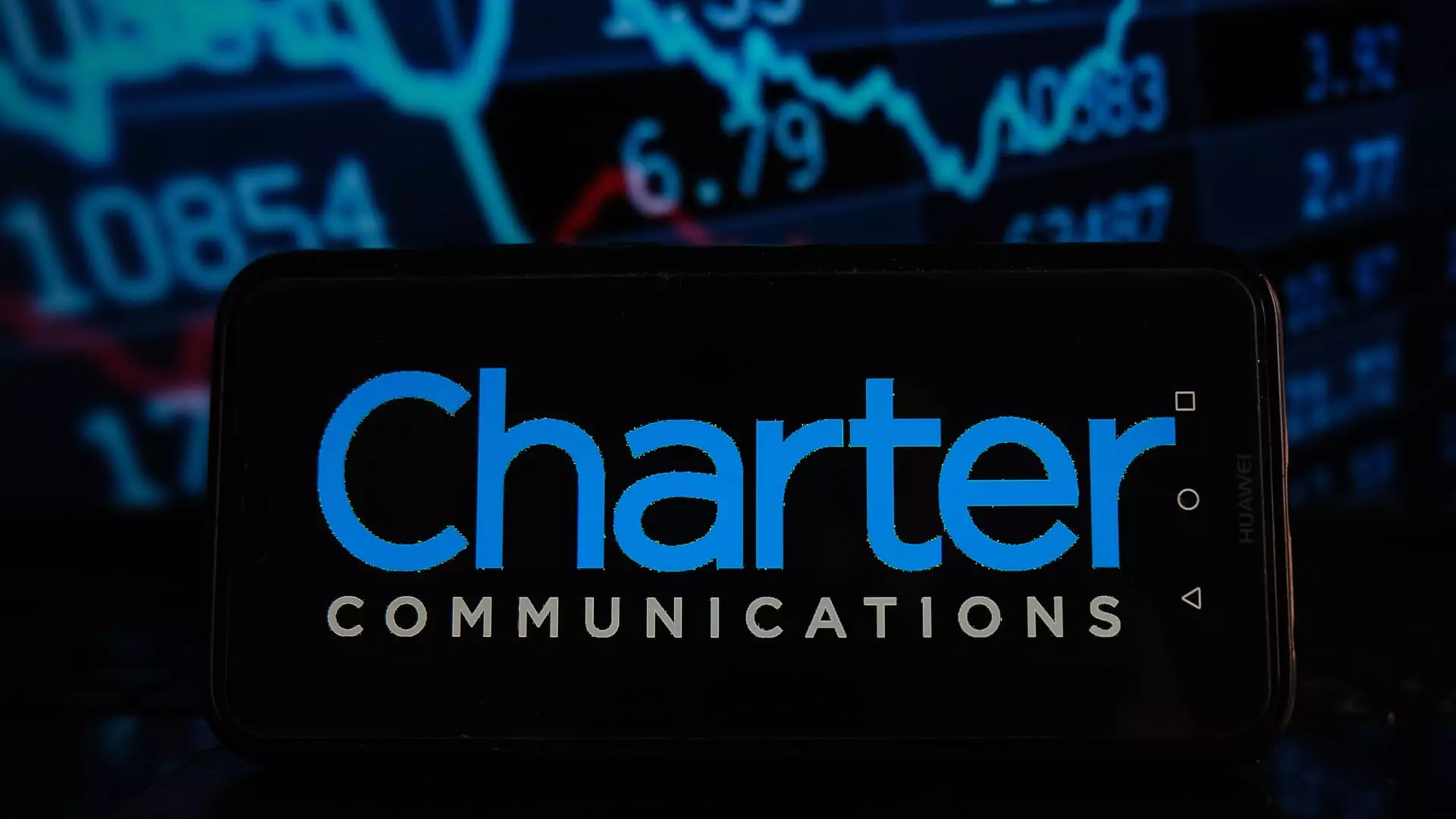In an era where corporations are wielding more power than ever, the proposed merger between Charter Communications and Cox Communications stands as a glaring example of unchecked corporate ambition. As two of the largest cable companies in the United States, their union represents not just an economic transaction worth $34.5 billion, but a monumental shift in the landscape of broadband and cable services. Swallowed in the hype of potential growth lies a critical reality—the consumer may ultimately pay the steepest price.
Charter, a public titan, and Cox, a privately-owned giant, seek to shore up their defenses against rising wireless competitors and the inexorable decline of traditional cable television. With over 30 million broadband customers reported by Charter and declining numbers in cable viewership, it’s undeniable that the pressures of modern technology and consumer preference are forcing these companies into a single entity. However, in this race for survival, we must question whether consolidation truly serves the public interest or simply emboldens corporate power.
The Cost of Competition: A Consumer’s Nightmare
While proponents of the merger tout potential efficiencies and cost savings, we must remain vigilant about the implications of further concentration in an already oligopolistic industry. The broadband market has already seen phenomenal shifts in consumer behavior, with many opting for flexible, competitive alternatives like 5G and fiber-optic internet. Consolidation will likely exacerbate pricing power, complicating what little competition exists. This merger may herald a future where the cost of internet services skyrockets, further alienating underserved communities who already face dramatic disparities in access to technology.
In grappling with a consumer base that has increasingly turned away from the traditional cable bundle, Charter and Cox are taking a dangerous gamble. With 181,000 cable TV customer losses in just one quarter alone, one must wonder: will this merger genuinely create more value for consumers, or just tighten the noose on those who remain captive in their networks?
Power Dynamics: Who Truly Wins?
Examining the corporate hierarchy post-merger is equally troubling. With Charter’s CEO, Chris Winfrey, positioned to retain leadership while Cox’s executive Alex Taylor assumes the role of chairman, we see a classic scenario of power consolidation that leaves little room for innovation and adaptability. It puts the interests of shareholders—who often prioritize short-term gains—productive consumer relations, or progressive infrastructural developments that respond to actual community needs.
Moreover, the impending name change to ‘Cox Communications’ raises investigative eyebrows—what happens to the brand loyalty and identity that Charter has cultivated? The decision may serve as a reminder that, in the corporate world, consumer relationships are secondary to market maneuverability.
Simplifying Complexity: The Illusion of Synergy
Charter’s expectation of achieving approximately $500 million in annualized cost synergy post-merger can sound appealing. However, it raises significant skepticism regarding how those savings will be realized. Historically, such claims have often resulted in layoffs, service cutbacks, or reduced customer service—a grim reality for the end users that often gets overlooked in the grand narratives crafted by corporate PR teams. The allure of a simplified integration often masks the intricacies of delivering diverse services that cater to the varying needs of consumers.
As Charter integrates Cox’s operations, customers will likely face confusion and reduced service quality during transitional periods. Reports of customer service woes following past mergers serve as stark reminders of the pitfalls of corporate consolidation.
The Path Ahead: A Corporate Monolith?
It is essential to reflect on what this merger signifies for the broader corporate landscape, particularly as it occurs alongside another significant acquisition with Liberty Broadband. The confluence of such massive corporate entities signals an unsettling trend. We are not merely witnessing the birth of a new corporation; we are seeing the creation of a corporate monolith that may threaten the very fabric of competitive practices.
In a moment when consumer voices need to be prioritized, there’s a compelling need for regulators and policymakers to scrutinize the merger that could redefine cable and broadband access in America. We must call into question the long-term consequences of allowing such corporatization to continue unchecked. Amidst profit-driven ambitions, let’s advocate for a world where equitable access to technology remains the priority over mere financial gain.

Leave a Reply